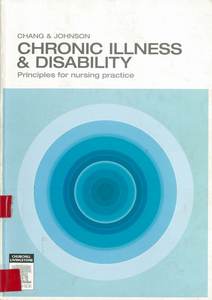Parkinson's disease, multiple sclerosis and motor neurone disease
Ray, Robin , and McAnally, Laraine (2008) Parkinson's disease, multiple sclerosis and motor neurone disease. In: Chang, Esther, and Johnson, Amanda, (eds.) Chronic Illness & Disability: principles for nursing practice. Elsevier, Chatswood, NSW, Australia, pp. 251-268.
![[img]](https://researchonline.jcu.edu.au/7327/2.hassmallThumbnailVersion/7327_Ray_and_McAnally_2008_cover_2.jpg)
|
Image (JPEG) (Book Cover)
- Cover Image
Download (110kB) |
|
|
PDF (Published Version)
- Published Version
Restricted to Repository staff only |
Abstract
This publication does not have an abstract. The first three paragraphs of the Introduction are displayed as the abstract.
The three neurological diseases featured in this chapter-Parkinson's disease (PD), multiple sclerosis (MS) and motor neurone disease (MND)- are all progressive disorders of motor function with sensory function also affected in MS. Each disease also has specific non-motor symptoms. Study of these three neurological diseases reveals that they have some initial symptoms in common, especially those associated with movement, highlighting the need for careful diagnosis. Following a stressful and sometimes frustrating period of hypothesising and indecision, symptomatic people and their families are confronted with a devastating, often life-limiting diagnosis.
Progressive neurological diseases present unique lifestyle challenges for the person and their carers living in the community. Every case is different and each person has their own cultural and social understanding of illness, its impact and the eventual end-of-life process. People with the disease and their carers become very knowledgeable about disease management. This expertise must be recognised and valued by nurses and other members of the healthcare team (Forbes et aI, 2007; Heisters, 2007). In this chapter, case studies have been provided to develop nurses' insight into the individual manner in which each disease may affect a person's life, their family and their relationships with the community.
Nursing people with any of these neurological diseases is very challenging, not only because of the complex and sometimes confronting symptomatology, but also the variable presentation of motor and non-motor signs in each person. A multidisciplinary approach to care is recognised as the preferred model, with nursing as a key discipline coordinating and providing care, giving advice, support and education, and monitoring the effect of medication. Effective care will only occur if nurses are prepared to work with other members of a multidisciplinary team and family carers to continually assess individual needs and collaboratively plan relevant supportive care, including timely access to community resources.
| Item ID: | 7327 |
|---|---|
| Item Type: | Book Chapter (Research - B1) |
| ISBN: | 978-0-7295-3868-8 |
| Keywords: | degenerative; mobility fuels technology; multidisciplinary team; neurological disorders; supportive care |
| Related URLs: | |
| Date Deposited: | 14 Jan 2010 04:52 |
| FoR Codes: | 11 MEDICAL AND HEALTH SCIENCES > 1117 Public Health and Health Services > 111708 Health and Community Services @ 100% |
| SEO Codes: | 92 HEALTH > 9204 Public Health (excl. Specific Population Health) > 920403 Disability and Functional Capacity @ 100% |
| Downloads: |
Total: 742 Last 12 Months: 14 |
| More Statistics |



